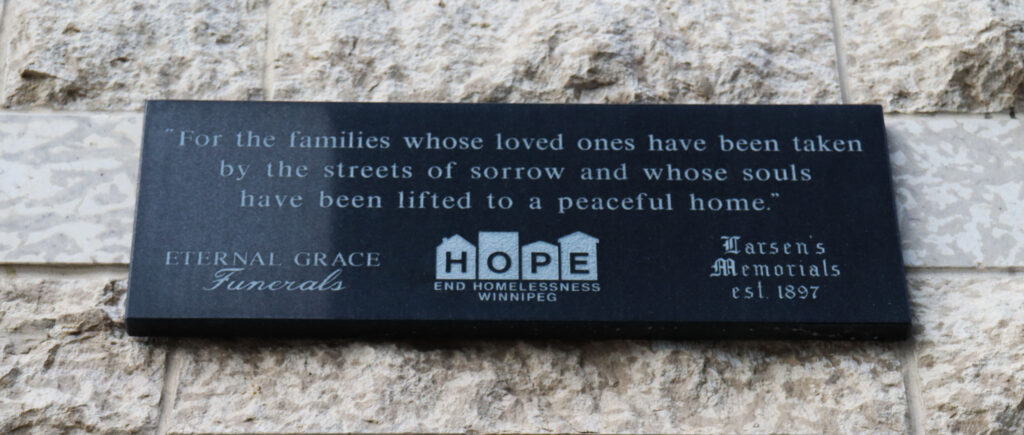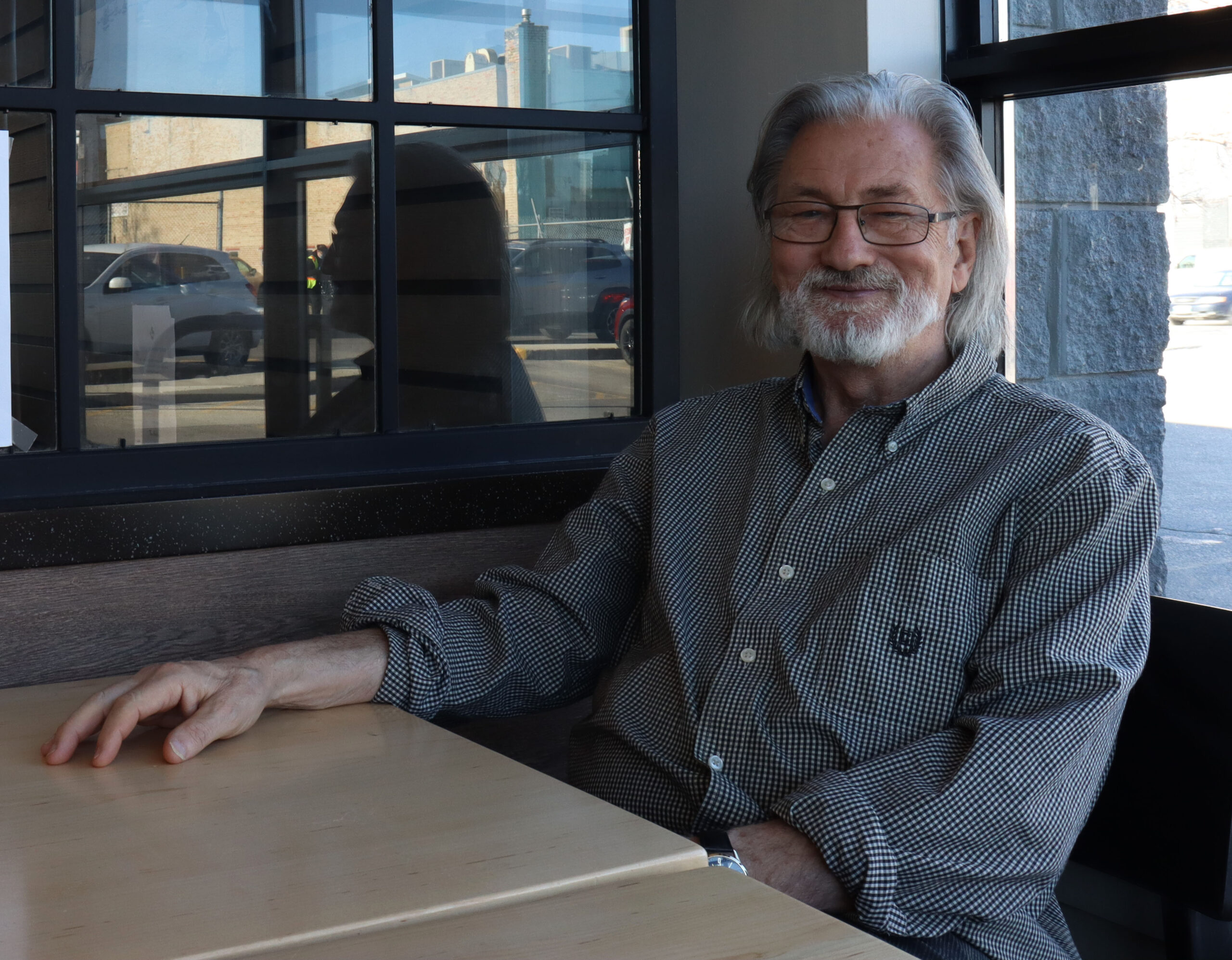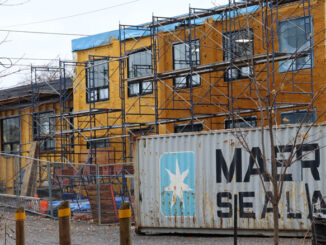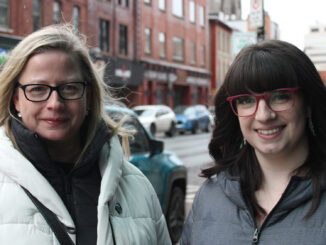Winnipeg homelessness advocate Al Wiebe organizes a yearly event as a way of honouring lives lost on the streets, and the loved ones they left behind.
Carmen Ponto
Kicker

Flowers. Grieving loved ones. An urn. Slideshows. These are the standard elements of funeral and memorial services when many Canadians die.
And yet Friday morning, at a small memorial service off Winnipeg’s main street, things looked a little different. People gathered in a windy square as 45 names were read aloud. The names were those of people who have died in the past two years while living on the streets.
Instead sitting in rows of pews, mourners stood, shopping carts and bags of possessions by their sides. They cradled cups of warm coffee supplied by a Winnipeg homeless shelter. Elder Lionel Houston played his drum and sang. Guests murmured prayers over tobacco ties and circulated a smudging bowl.
There were no slideshows. No photos of the dead in happier times. No urns. If asked, most in attendance wouldn’t know what had happened to the bodies.
Many of the names were unknown, too. Staff from various local social services agencies had come to pay respects to those they knew, and to those they didn’t.
From homeless to advocate
Al Wiebe almost became a name on the list of the dead – though at the time, there was no list. He’s the one who started it.
In 2009, Wiebe found himself suffering from severe depression. An advertising executive with a six-figure salary, a wife and kids, he ended up on the street for 28 months after losing his job and being denied the mental health services he needed.
“My death would’ve been from suicide.” Wiebe said. He happened to survive the day he jumped into the Assiniboine river. He’d hoped that the undercurrent would sweep him away. Instead, he made it to shore.

Carmen Ponto/Kicker
Twelve years later, he is a homelessness advocate, having met the prime minister, the mayor of Winnipeg, and the parliamentary secretary for housing. He has been featured in the media countless times for his outspoken advocacy work and speaks at conferences regularly.
Wiebe started the memorial service in 2017, when he learned that similar events were being held in Ontario. The Winnipeg event is typically small – about 40 people – and Wiebe said he keeps it that way for a reason.
He calls the service a somber event that, above all else, is meant to honour the lives lost and the loved ones they left behind. Politicians and press are normally kept away.
This year marks the fourth service – the first in two years after the pandemic caused last year’s cancellation. Each year, Wiebe collects the names of the unsheltered deceased. He puts notices up at homeless shelters and drop-ins. Those who have lost a loved one add the name to the list themselves.
The names and numbers aren’t official, and the list is never exhaustive.
Natural and necessary
Johndavid Pankratz listened carefully as the names were read. As a homelessness advocate who has worked and volunteered with various organizations, attending the event was “completely natural and perhaps necessary.”
Pankratz didn’t know any of the people who died, but he was familiar with some of the surnames. He said just hearing a familiar surname from the list was a shock to the system. He says such shock is necessary in order to understand.
“It connects me to the fact that people die of homelessness,” Pankratz said. “To not be there [at the memorial] is to ignore the worst thing.”
“They say for every year out there you lose seven years of your life”
Al Wiebe
Neither Wiebe nor Pankratz see the need for this event to stop anytime soon. As long as there are unsheltered people, there will be tragic deaths on the streets.
“There are a lot of deaths out there,” Wiebe said. “Lot of people die of heart attacks, people die of drug abuse, people die from fires, people die of stroke . . . lots of violence . . . hypothermia and heat stroke, too.”
Despite his now comfortable life, Wiebe still feels the the residual effects of his time on the streets. He lives with his partner and brings in a good income. He’s in high demand for speaking engagements and is paid for many of them. Despite this turnaround, the trauma from the years he was homeless continue to take their toll.
“They say for every year out there you lose seven years of your life, and I feel like I’m way over my expiry date.”




Be the first to comment